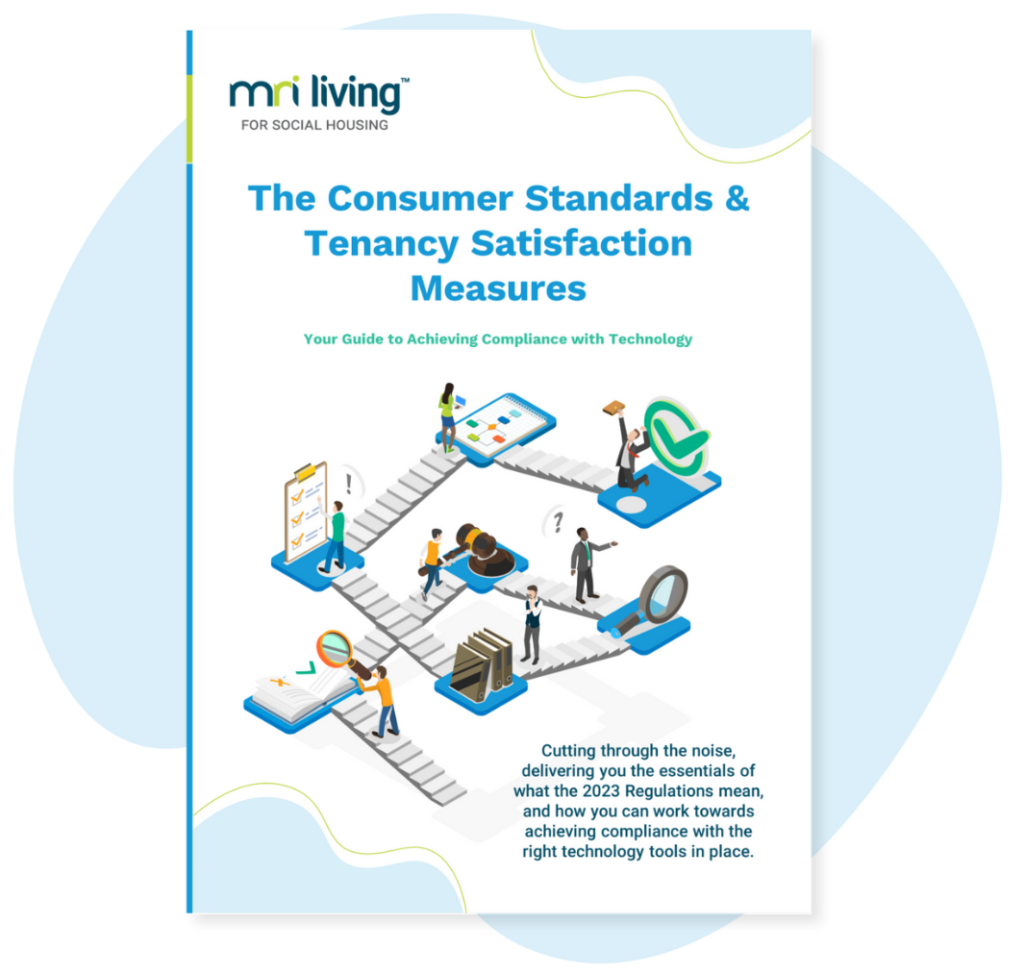Building Sustainable Tenancies: Ending Furniture Poverty
14 million homes in the UK would struggle to replace an essential item of furniture, making it a real but silent form of poverty.
The household essentials many of us take for granted are not the reality for some vulnerable tenants, an issue that has been brought to the forefront of discussions about what poverty looks like in the UK in the last few years. This so-called ‘furniture poverty’ is not simply a lack of material goods, but affects the ability of a resident to feel like they are living a ‘normal’ life, which is in turn, a threat to long-term, sustainable tenancies.
Addressing furniture poverty at a pre-tenancy stage could reduce tenancy termination; in research conducted by Sheffield Hallam University, early tenancy termination was 15% higher amongst customers with unfurnished tenancies as opposed to furnished tenancies.
“How would you feed your family properly without a cooker? Would you feel comfortable inviting friends around if they had nowhere to sit but the bare floor? For too many people, these are the challenges they face day in, day out”
Paul Colligan, End Furniture Poverty, November 2018
Households that are unable to afford basic items like mattresses and fridges are often those who are in transition such as young care leavers in their first home, those fleeing domestic violence, veterans and refugees. For some, furniture poverty is identified as moving into a home with nothing and living without the basic semblance of a home, while for others it is the inability to replace broken items. In the UK, 14 million homes would struggle to purchase one essential household item if a white good broke down or furniture needed replacing and because it occurs within the confines of shelter – what housing providers supply – it is easy to overlook.
The three barriers for individuals and families to access the help that they need are: low income, funding eligibility and low funding. Indeed, some existing support schemes are particular about those who can access services, meaning that many that would benefit from it are barred from this support, while in other cases, those who can access funding from local schemes find that the sums offered are not substantial enough to source the items that they need.
“Furniture is one of the most important ‘extras’ social landlords can provide to reduce risk of debt with legal sharks, rent arrears and abandonments”
Helen Campbell, Financially Healthy Communities
In November 2016, End Furniture Poverty launched a survey of housing providers, local authorities, charities and tenants to define what items in a household constitute a good standard of living, in the aim of standardising what organisations in the UK mean when they talk about furniture poverty. The aim of the organisations was to influence the social and private sector to enact minimum provisions for tenants, to lobby the government for the release of more funding, to raise awareness of the issue and to bring together service providers in a uniform approach.
End Furniture Poverty believe, based on the result of the research that living without the following ten items constitutes furniture poverty and that providing one, or even several of the items without the others is not enough to build a stable tenancy and suitable home:
The Essentials:
- Bed and mattress
- Table and chairs
- Sofa or an armchair
- Wardrobe and drawers
- Carpets for living room and bedroom
- Blinds or curtains
- Washing machine
- Fridge/freezer
- Cooker
- Television
With wardrobes and drawers listed by End Furniture Poverty as essential household elements, one strategy for eliminating furniture poverty could be to adapt existing stock or build new stock to include built-in storage. One of the more obviously affordable pathways to providing all items on this list is to look for second-hand versions; partnerships with house clearance and second-hand charities could help bring good quality items into homes. When tenants move on, some may leave behind items that can be returned back into the system to help others in need, rather than going to landfill.
Addressing furniture poverty falls under the jurisdiction of addressing financial inclusion. Furnished social housing offerings, in comparison to that of the private rental sector fall dramatically short at 2%, which equates to around 70,000 properties. In the private rental sector, furnished properties are commonplace and for those without these items, it relieves a huge financial burden. For housing providers, offering a furnished tenancy could result in lower tenancy failure and possibly make it easier to rent out historically unpopular properties.
CASE STUDY: Community Furniture Aid, Pontycymer, Wales
Community Furniture Aid is a small charity reliant on donations of second-hand furniture to create ‘starter packs’ for families in need that are referred to them by organisations, such as Womens Aid, the Prison Service, the Salvation Army and ex-service personnel. Started by a local couple, the charity receives no funding, charges no excessive fees and is run by volunteers. Costs are cut to a minimum by using a church that is unused due to a lack of electricity or water to store the items.
CASE STUDY: Orbit Housing Association, Midlands & South East
Orbit Housing started offering furnished tenancies and also leaving existing flooring and curtains for incoming tenants when they would have previously been stripped and sent to landfill. Not only is this cost neutral, it reduces the workload of their property services team and any costs for providing a furnished tenancy can be charged as a small service charge spread across many months to the tenant. Orbit housing found that for every £1, they gained £2.11 in social return.
CASE STUDY: Homestore, London
Homestore have been providing second-hand and new furniture at reduced prices to families in need in East London for over 30 years. Over a decade, the number of families trying to access their service has quadrupled and the main trend is the growth of working families that are seeking out their services.
The increase of working households living without the bare essentials needed to build a functional life should be a feature of the past, not of our present. Teaming up with local organisations that work in furniture provision may also provide customers with opportunities to volunteer or work in situations where they can directly impact their community, with this web between organisations and residents, in turn building better communities. Having the bare bones of a household can be the difference between a failed tenancy and a long-term home and the impact of this should not be underestimated.
The Consumer Standards and Tenancy Satisfaction Measures: Your Guide to Achieving Compliance with Technology
Cutting through the noise, delivering you the essentials of what the Consumer Standards and Tenancy Satisfaction Measures 2023 Regulations mean, and how you can work towards achieving compliance with the right technology tools in place. New regulatio…

